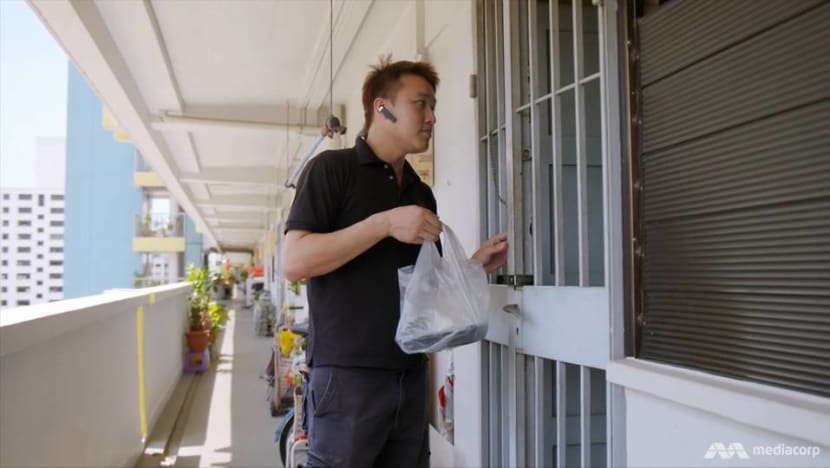The Singaporean who found a way for inmates, people with disabilities to help seniors
He was a man with a plan to help others, but this restaurant executive had to first overcome resistance from his staff, suppliers and even those who were going to benefit. He is one of CNA’s Champions for Change.
SINGAPORE: When Mr Ang Kian Peng visited a voluntary welfare organisation (VWO) in 2013, he saw what was served during mealtime: A mishmash of processed and deep-fried food, such as hot dogs and chicken nuggets.
The items were easy to cook, but he was appalled because “most of the beneficiaries are suffering from some sort of illness, so if you continue to feed them that kind of unhealthy food, you're worsening the conditions”.
Mr Ang left feeling disturbed – and determined to help them.
He was spearheading the corporate social responsibility efforts of his company, the home-grown eatery Soup Restaurant Group, and that very year, he founded Samsui Kitchen to provide healthy food for beneficiaries of nursing homes and charities.
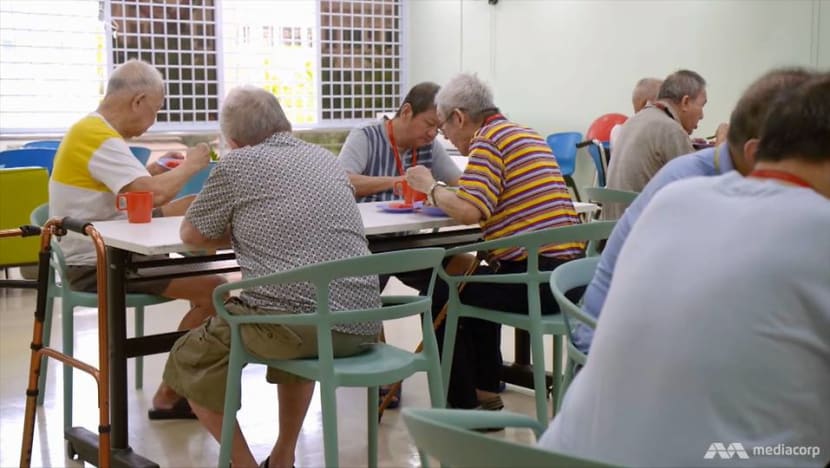
Samsui has since grown exponentially, and not just as a subsidiary meal provider. It has evolved into a self-sustaining social enterprise that is creating jobs by engaging prison inmates and people with disabilities to prepare the meals.
It now churns out more than 1.5 million meals annually for the elderly and the less fortunate, with a central kitchen located in the Changi Prison Complex.
Even before that kitchen opened its doors in 2017 to eager inmates, Samsui was cited by Finance Minister Heng Swee Keat, in his 2016 Budget speech, as an “inspiring example” of a company that was contributing to society.
READ: About half of firms practise corporate giving; volunteering an area for improvement: NVPC
Mr Ang, 41, is one of Channel NewsAsia’s Champions for Change, a series marking the channel’s 20th anniversary this year by celebrating 20 individuals whose imagination, talents and efforts have uplifted communities across Asia.
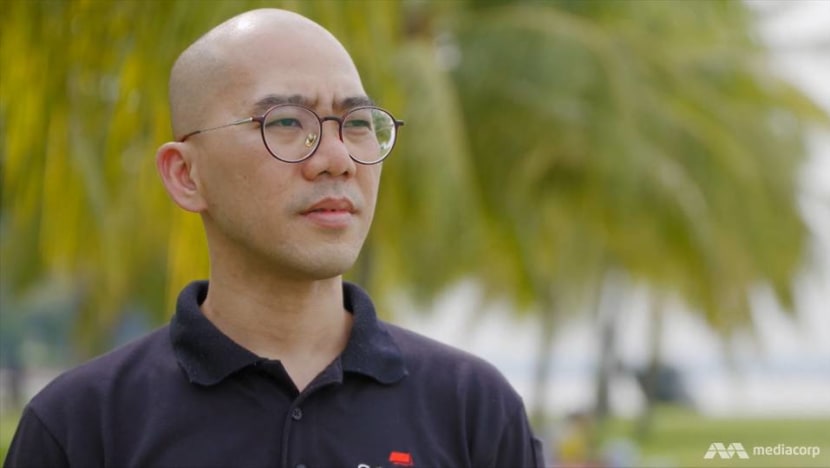
They include a former architect who provides employment for adults with autism, training them to become jewellery artisans in Singapore, and a Vietnamese duo who have developed an affordable, sustainable way to farm crickets as a food of the future.
IT STARTED WITH HIS GRANDMA
Mr Ang’s desire to help the less fortunate stems from his childhood. As a boy who accompanied his grandmother to Buddhist temples serving free vegetarian meals, he got to observe people, including the needy, queueing for the food.
It made him feel sad. “She’d always tell me … how blessed we were,” he recounted.
“She formed a kind of foundation for me when I was growing up, to do more charity work.”
She had a hard life too, working long hours on a construction site to bring up her six children. “And that made me appreciate the life that we had,” he said.
A rebellious rather than a studious child, he used to skip school, although he knew that he “wanted to do something that would be different from what other people were doing”.
When he started working at Soup Restaurant Group, he thought about how to make philanthropic efforts one of its priorities.
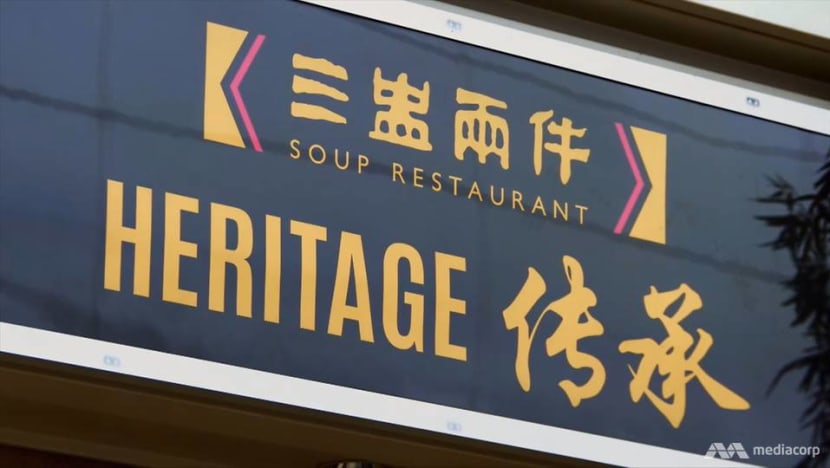
“How do we do something that would be beneficial to the community? This was what I’d always wanted to do when I was young,” he said.
That memorable visit to the VWO convinced him that his company could leverage its strengths to provide nutritious subsidised meals, freeing up resources that could be diverted to the beneficiaries instead.
“We thought that as a food and beverage company, we could do better … We couldn’t see a problem there and then leave it as it is,” he reasoned.
“Their (voluntary welfare organisations) main skill set is to run a nursing home … (and) not really to run a kitchen to cook for the beneficiaries.”
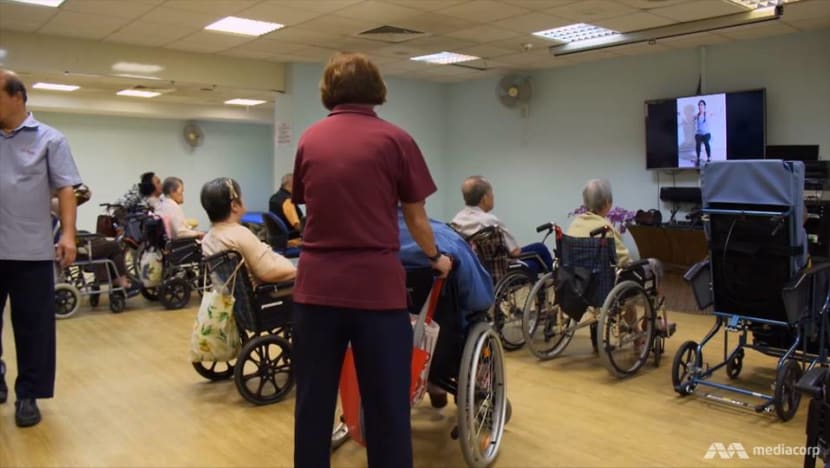
HE FELT LIKE GIVING UP
Mr Ang knew the project had to be sustainable and not just be about giving away free food.
This meant roping in suppliers to subsidise part of the meals, as well as employing beneficiaries – people with disabilities and other underprivileged groups – to help prepare the meals. “It’s like one beneficiary serving another beneficiary,” he said.
But it was a tough sell to the suppliers, chefs and even the beneficiaries.
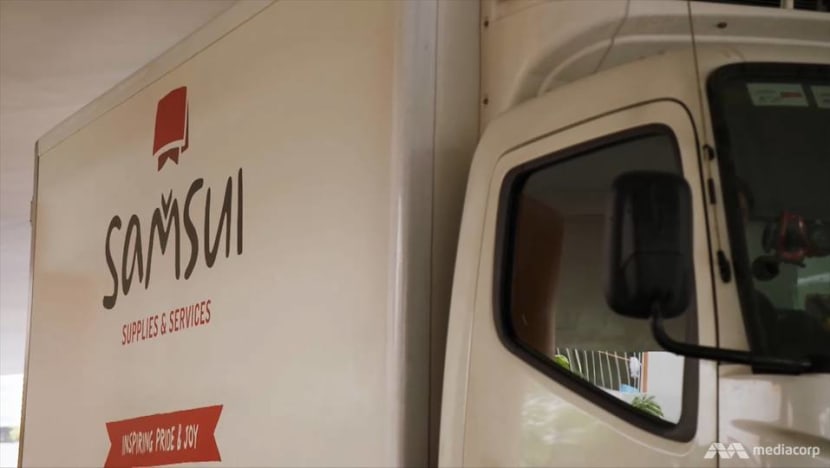
Some sceptical suppliers asked the organisation to have separate account books, one for the charities and one for commercial sales. Others questioned whether the initiative was a ploy for the restaurant group to get cheaper produce.
“We felt a lot of distrust,” said Mr Ang. “We’re trying to do something for the community, and here you are, questioning our integrity.”
Even the beneficiaries wondered if they would really be giving back to society or embarking on a marketing gimmick. “At that point in time, you want to give up,” he admitted.
Getting his chefs involved, especially asking them to do extra cooking during their downtime, “was also quite a task”.
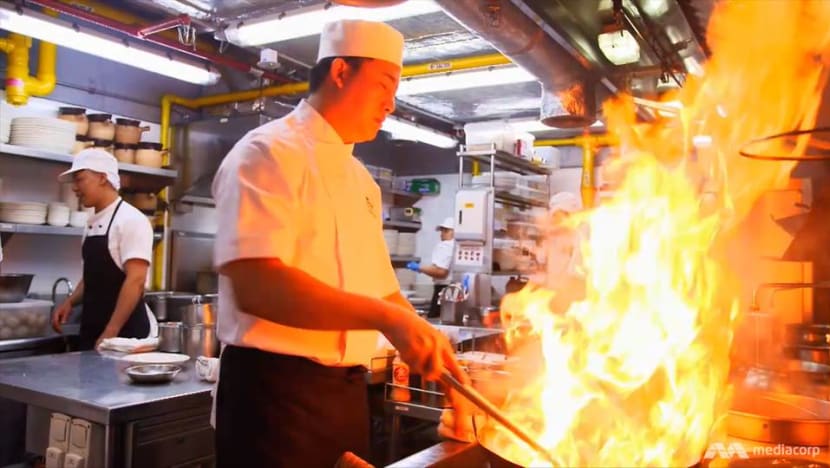
“So we told them that ‘you’re actually doing it for the future: You may one day end up in nursing homes … you may be at the receiving end of the food’,” he said.
“And if you’re going to end up in a nursing home, it’s time to think about how you can enhance the menu or the food.”
Eventually, the Soup Restaurant chefs came on board. But the food preparation turned out to be a steep learning curve for them.
They had to cater for the different ethnic groups, minimise the use of salt and sugar and even blend the food or cut it into smaller pieces to make it easier for the elderly to chew.
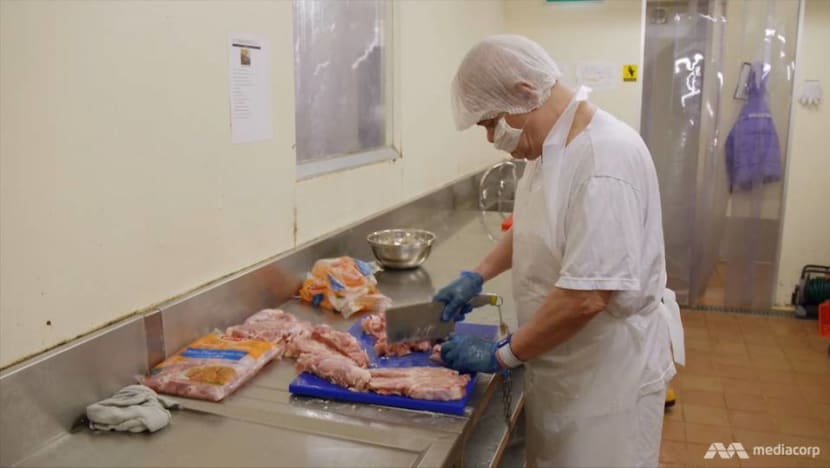
“The first time we cooked deep-fried chicken, we made it very crispy, and the elderly didn’t have the teeth to bite the chicken,” recalled Mr Ang.
“And a lot of the beneficiaries were allergic to seafood. So all our menus had to be reinvented.”
As for the suppliers, Mr Ang tried another tack. “We explained to the suppliers, “You’re killing a lot of chickens (and) pigs. So it’s bad for your karma,’” he recounted.
“We told them, ‘It’s good for you to accumulate some brownie points. So this is where giving back to the community helps to win some brownie points. So I think it’s good for you and also good for your family.’”
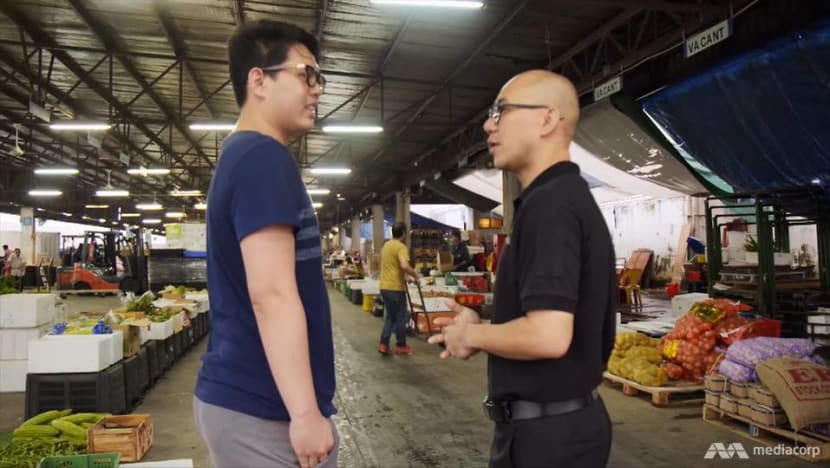
GETTING PRISONERS INVOLVED
By 2016, Samsui Kitchen had served over half a million meals, including chicken curry, laksa and mee rebus – albeit with a healthy twist – and won the President’s Volunteerism and Philanthropy Award.
This initiative, however, was not only about providing meals but also jobs. So when Mr Ang was brainstorming for more ideas, he thought about tapping the human resources available in prison.
One of his friends, private home museum owner Alvin Yapp, said: “Who would’ve ever thought that a prison was able to also support the community? But for Kian Peng, it was something that he really wanted to pursue.”
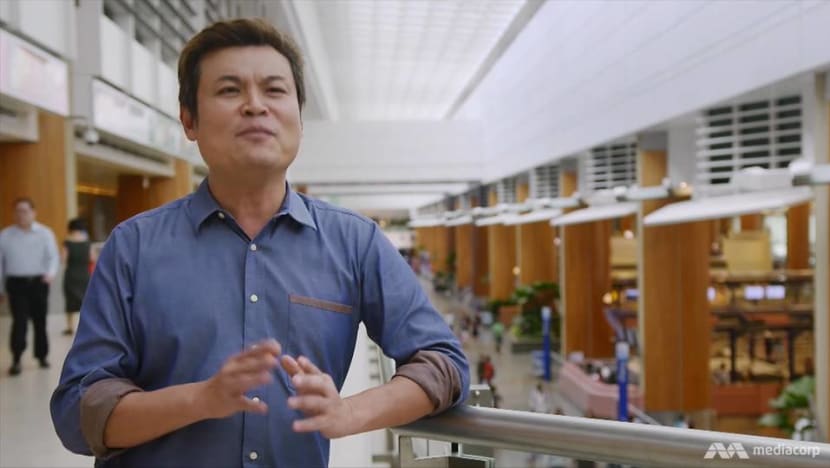
Mr Ang gathered resources, his network of friends and financing, and within a few months, the Samsui Central Kitchen @ Changi was born in the prison.
A collaboration with the Singapore Corporation of Rehabilitative Enterprises and Standard Chartered Bank, it was launched with 30 inmates selected and trained in food hygiene, food preparation and kitchen operations.
"They’re always the people who are stigmatised when they’re in the community, so we thought employing them is a good chance for them to give back while they’re serving their sentence," said Mr Ang.
They are equipped with the latest knowledge and skills in the automated kitchen, which also prepares them for the workforce, upon release. And one inmate shared that he has since found a love of cooking.
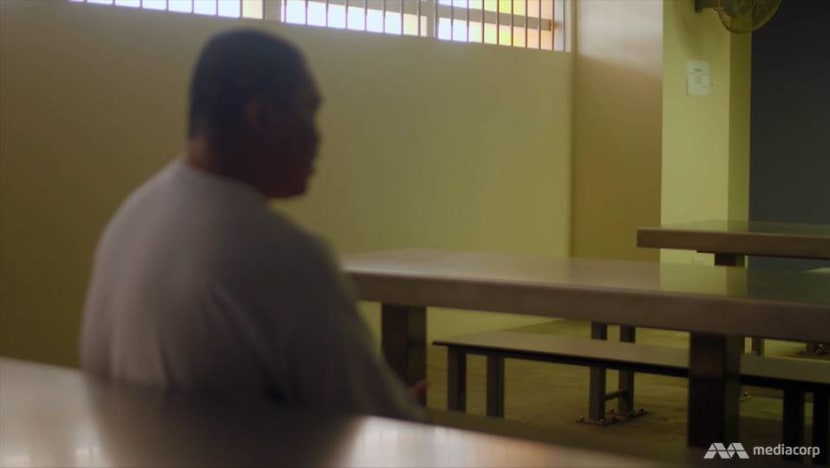
“I like working here because they’ve created opportunities for us to come out and learn something,” he said. “I also appreciate all the staff who’ve helped me to improve my cooking.”
In November, Samsui reached another milestone: It designed a kitchen in the Enabling Village for people with disabilities to join in its initiative.
The cooking facilities were kept low for wheelchair users, and there are no open fires, only induction cookers, to make it safer for the staff.
“We’ve been able to accomplish a lot of things,” said Mr Ang. “We look at how it translates into happiness. It’s not just about the beneficiary getting the job – you look at the joy it brings to the family.”
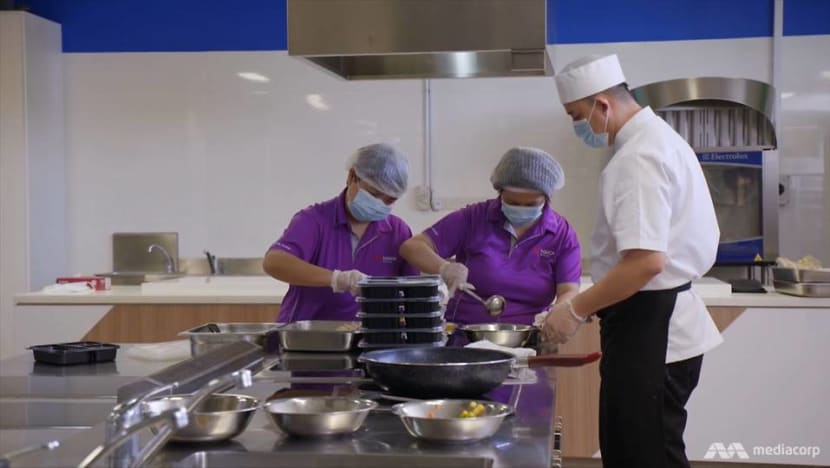
Last year, Samsui also became one of the first private firms to join the Meals On Wheels scheme, to deliver the food they prepare to frail or housebound seniors.
When Mr Ang first started the Samsui Kitchen project, serving 100 to 200 meals daily, he did not expect it to grow to the size it is today, nor that it would change him as a person.
“Initially, we always thought that people with disabilities weren’t able to contribute to society. But (now) we know that everyone has a role to play in the entire society,” he said.
“I feel very accomplished, but there’s a long way to go. It’s still the beginning of the entire journey. I feel very happy that I’m able to do something that I wanted to do all along.”
Watch this episode here, and also read about the woman who’s turning Myanmar’s street children into chefs. Catch the series Champions for Change on Wednesdays at 9pm, and view the details of the other profiles here.
